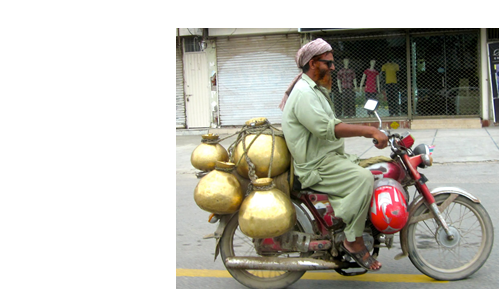As laid out by Akerlof (1970), asymmetric information about product quality should create a market for lemons. The market for untreated milk in Lahore, Pakistan, has many characteristics that would allow for a lemons market to exist. For example, milk quality is hard for consumers to discern in this setting, but easy for milkmen to manipulate – for example by watering it down or adulterating it in cheap but sophisticated enough ways to avoid detection through visual or taste inspection. This study of Pakistan’s untreated milk market will investigate whether such a market for lemons actually exists, will examine the impacts of providing consumers with credible milk quality information, and will consider whether milk quality information along one dimension might be supplanted by quality information along another.
In order to answer these questions, the research team will pilot two milk quality technologies in Lahore. The first is quality testing with a simple device called a lactometer, a hydrometer and a glass beaker that tests the density of a milk sample (and thus if has been watered down) and can be performed on the spot by consumers themselves. The second is a ‘Milk Adulteration Testing Kit’, a briefcase-sized kit that can detect common adulterants in milk using a series of coloured dyes that are added one-at-a-time to small samples of milk. Households across four localities will be either (i) given a lactometer and trained how to use it, (ii) given the option of having milk adulteration tests done by field RAs on the spot, (iii) offered both tests, or (iv) offered information on tests for quality available to them. Additionally, milkmen will be surveyed to better understand their decisions regarding quality, prices they offer, dynamics of the market, and implications of the quality intervention on their welfare.
Because of the importance of the milk market in Pakistan, there are many thousands of milkmen that aim to make a living in a setting where informality and the associated lack of regulation, combined with asymmetric information, could create a lemons market with serious welfare implications. By carefully studying both sides of the milk market in Lahore by introducing multi-dimensional quality information, the research will provide insight into how information can help consumers as well as affect milkmen and the market as a whole.







